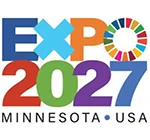 In 1932, Harry Warren wrote the popular standard You're Getting To Be A Habit With Me. Non-football fans would be excused if they thought it was the theme song for the National Football League because once again the NFL tops my annual PR crisis list.
In 1932, Harry Warren wrote the popular standard You're Getting To Be A Habit With Me. Non-football fans would be excused if they thought it was the theme song for the National Football League because once again the NFL tops my annual PR crisis list.
Shortly after the Meuller report was released, two of the NFL’s most media-iconized team owners made statements that would make any reasonable person think that John Mara, of the New York Giants, and Art Rooney II, of the Pittsburgh Steelers, lived their entire life in an NFL locker room.
The two owners gave their full support to their high-salaried employee, Roger Goodell, whose title is NFL commissioner, about his handling of the Ray Rice domestic violence matter. And in a conference call with reporters Rooney said,”I think this is a wake up call for the league and maybe society in general that we need to take domestic violence more seriously.” As if society depends on the NFL for decency. Domestic violence has been a hot media topic for decades, although you would never know it if your universe consisted of what happens on a football field.
Close runner-up honors for having a continuing PR crisis goes to Bill Cosby. As if he didn’t have enough problems in 2014, he received additional negative publicity when he told a joke in January about being “careful about drinking around me.” (Writer’s take # 1: NFL execs have to stop believing that people are stupid, and Cosby needs someone to write some good taste ad-libs for him.)
Right behind Cosby for being a repeat crisis person isDr. Mehmet Oz, the surgeon and TV personality. As reported on this Web site by Kevin McCauly, “A group of ten top doctors want ColumbiaUniversity to boot TV celebrity Dr. Mehmet Oz from its faculty for his "repeatedly shown disdain of science and for evidence-based medicine." A few days later, doctors at Dr. Oz’s facility, Columbia University College of Physicians and Surgeons, joined the criticism.
Another repeater to the crises scene is SeaWorld, cited by the California Division of Occupational Safety and Health for not advising employees of the dangers posed by Orcas, and for discouraging trainers to report problems.
Also, General Motors returns to the list with news reports that its compensation death fund approved the 100th claim in May due to faulty ignition switches, greatly exceeding the 13 victims that G.M. admitted to last year, and by settling criminal charges with the Feds about its ignition problems.
So did JPMorgan Chase, no stranger to negative media coverage, with stories saying it agreed to pay $136 million to settle charges that it used illegal tactics in its dealing with credit card barrowers, along with coverage of other unsavory doings against an employee who refused to be pressured into selling the bank’s mutual funds.
As usual, 2015 again proved that some PR crisis problems are not entirely the victim’s fault, like plant explosions, hackings, weather-related problems, and firms drawn into media crises because of the behavior of others. But when public personalities are involved the problems are often self-inflicted.
And now for several prominent 2015 PR crisis situations new to the list:
Personalities:
- President Obama not attending or sending a high-raking government official to the anti-terrorist unity Paris march.
- President Obama refusing to use the term Islamic terrorists.
- Rudy Giuliani saying that Obama doesn’t love America.
- Brian Williams “miss-remembering” his being in a helicopter that was hit by enemy fire in Iraq.
- Bill O’Reilly’s “exaggerations” of his CBS reporting days.
- Dr. Ben Carson saying that homosexuality is a choice.
- Ben Affleck, for pressuring to have the finding that his ancestors were slave owners eliminated from the PBS Finding Your Roots program. Prof. Henry Louis Gates, Jr. for doing so.
- Donald Trump for his disparaging remarks about women, Mexicans, Sen. McCain, and the unsubstantiated claim about seeing thousands of Muslims in Jersey City cheering on 9/11.
- Carly Fiorina, for telling tales about baby parts footage that she saw, despite such footage not being authenticated, and also for fudging her business record.
- New England quarterback Tom Brady caught in the deflategate turmoil.
- George Stephanopoulos, for failing to keep his distance from the Clintons, which resulted in media criticism that he cannot be trusted as an honest broker during the primary and election seasons.
Corporations:
- Starbucks, which for years has been receiving plaudits for the old public relations gimmick of a company taking a stand on social and political issues, went one step too far with its “Race Together” campaign, urging customers to discuss racial issues with strangers preparing coffee. The effort was ridiculed in addition to receiving negative publicity.
- A story in the USA TODAY/Journal News on April 5threported that the Food and Drug Administration warned StriVectin, about claims regarding the efficacy of its anti-aging products. The article also referenced that in recent years the FDA had sent similar warning letters to other skin-care companies, specifically mentioningAvonand Lancombe.
- Medtronic Inc. received negative coverage for “repeatedly failing to correct violations related to the manufacture of Synchromed II Implantable Infusion Pump Systems,” according to the Justice Department and the Food and Drug Administration.
- Quicken Loans was sued by the Justice Department for making improper loans that the Feds said resulted in millions of dollars losses to the Federal Housing Administration.
- DraftKings, which has agreements with Major League Baseball and the National Football League, and FanDuel, the two leading fantasy sports gaming corporations, for allegedly operating illegal betting sites.
- Volkswagen AG for being a target of a criminal investigation by the feds for manipulating exhaust emission tests.
- Coca-Cola, which received major coverage when the Times reported that it provided money for research which would lessen the negative affects its products has on causing obesity.
- Bud Light, for again being forced to change its bad taste label marketing campaign. This time its label saying, “The perfect beer for removing ‘no’ from your vocabulary for the night” drew criticism from Rep. Nita Lowey and others, forcing Bud Light to say it would not put the label on any more bottles. In March, the suds product tweeted that “On St. Patrick Day, you can pinch people who don’t wear green…” The post was with drawn after protests.
- Teva Pharmaceutical Industries settled a law suit by the Federal Trade Commission for a record $1.2 billion for paying drug manufactures to not make a generic version of its Cephalon sleep disorders product, thus limiting consumer’s choices.
- AT&T Mobility was fined $100 million for not adequately notifying customers with unlimited data plans that their service can be slowed.
- Citbank was fined $700 million for illegal credit card marketing.
- EBay-owned Pay Pal, was fined $25-million by the U.S. Consumer Financial Protection Bureau for violating consumer protection laws.
- Takata for defective air bags, said to cause multiple deaths and injuries.
- Fiat Chrysler was fined a record $105 by the Feds for auto safety recall failure.
- Chipotle, which received continuing coverage for people becoming ill after eating at their restaurants.
- Blue Bell Creameries received negative coverage when CBS News and the Wall Street Journal reported that the company is being investigated by the U.S. Justice Department for listeria contamination of its ice cream. The WSJ also reported that previously U.S Food and Drug Administration records showed that the company didn’t follow practices that might have prevented the contamination.
- A three-peat to the list is BP, which despite its $18.7 billion settlement with various governments still has eons to go before again being considered a good corporate citizen. (Writer’s take # 2: What’s the Lesson Learned? A media PR crisis is not over until the media says it is, despite the efforts of crisis communication “experts.”)
The Joe Paterno and Bill Cosby situations are proof of what I’ve been saying for years: Some PR crises will take many generations to be forgotten or perhaps never, until the media stops referencing it.
The tobacco industry, oil spills, Nixon and Bill Clinton are prime examples. That’s where Joe Pa and Cosby come in. News coverage about Paterno again being the winingest coach in major college football surfaced when the NCAA restored PennState’s victories, regurgitating the Jerry Sandusky sex scandal during the days when Sandusky was a prominent member of Paterno’s staff. The questions of Paterno knowing about but not doing anything to stop Sandusky was again included in media coverage.
Another example was the story about the anti-media feelings of Cosby’s wife in the New York Times on January 20. Seemingly inspired by Cosby’s defenders, the lengthy article rehashed the accusations against him.
(Writer’s take # 3: It’s best not to attack media coverage unless the stories can be proved false and the injured party has definite proof of being innocent.)
In a negative media category by itself is the NFL, which receives continuing damaging publicity because of the violent nature of its on field product and the off-the-field conduct of its players. The latest addition to the maelstrom was Concussion, the move which shows how the NFL attempted to destroy the reputation of the researcher, Dr. Bennet Omalu, who uncovered the brain changes in players.
Like the CNN documentary Blackfish, which enlightened the public about the controversial treatment of killer whales used as entertainment at SeaWorld, resulting in negative public and governmental attitudes toward the practice, Concussion has the ability to inform the millions of people who have no or little interest in football about the violent nature of the game and how the NFL closed its eyes to the situation until forced to take action because of media revelations, led by the New York Times, congressional hearings and the scientific research.
Even prior to the movie being released, the Wall Street Journal published on November 25 a fill page excerpt from Concussion, the book published by Random House. The excerpt detailed how the NFL attempted to destroy the reputation of Dr. Omalu, whose research highlighted the issue.
(Writer’s take # 4: Clients should think twice, no many times, before succumbing to the magical spells of PR crisis specialists and opening up the vault: Because history proves that what they sell are too often illusions, just like performers of magic, that are ignored by the media. The NFL’s years-long unsuccessful efforts to “protect the shield” against negative concussions and physical abuse media coverage are noteworthy examples.)
* * *
Arthur Solomon, a former journalist, was a senior VP/senior counselor at Burson-Marsteller, and was responsible for restructuring, managing and playing key roles in some of the most significant national and international sports and non-sports programs. He now is a frequent contributor to public relations publications, consults on public relations projects and is on the Seoul Peace Prize nominating committee. He can be reached at [email protected].


 AB InBev has hired Donna Lorenson as chief communications officer and elevated the PR function to the senior leadership structure in the aftermath of the Bud Light marketing disaster.
AB InBev has hired Donna Lorenson as chief communications officer and elevated the PR function to the senior leadership structure in the aftermath of the Bud Light marketing disaster. Tunheim handled the Minnesota USA World Expo bid committee, which on June 21 congratulated Serbia for landing the 2027 event.
Tunheim handled the Minnesota USA World Expo bid committee, which on June 21 congratulated Serbia for landing the 2027 event. United Minds, management consultancy, has launched Myriant, a business resiliency offering to help clients deal with the challenges during this era of misinformation, polarization and geopolitical upheaval.
United Minds, management consultancy, has launched Myriant, a business resiliency offering to help clients deal with the challenges during this era of misinformation, polarization and geopolitical upheaval.  ImageShield, which guards against online image abuse, is looking for a communications pro to handle its PR and marketing campaigns.
ImageShield, which guards against online image abuse, is looking for a communications pro to handle its PR and marketing campaigns. Who knew that there is a real paper company, Pennsylvania Paper & Supply, inside the iconic building seen at the opening of every episode of “The Office?”
Who knew that there is a real paper company, Pennsylvania Paper & Supply, inside the iconic building seen at the opening of every episode of “The Office?” 


 Have a comment? Send it to
Have a comment? Send it to 
No comments have been submitted for this story yet.